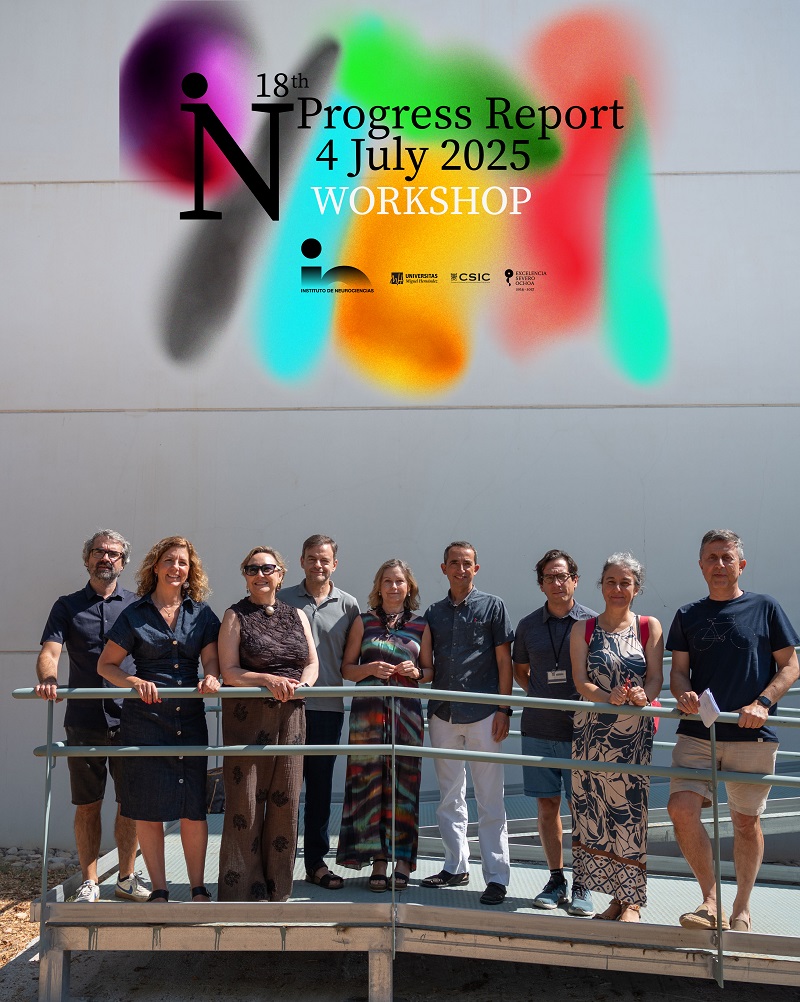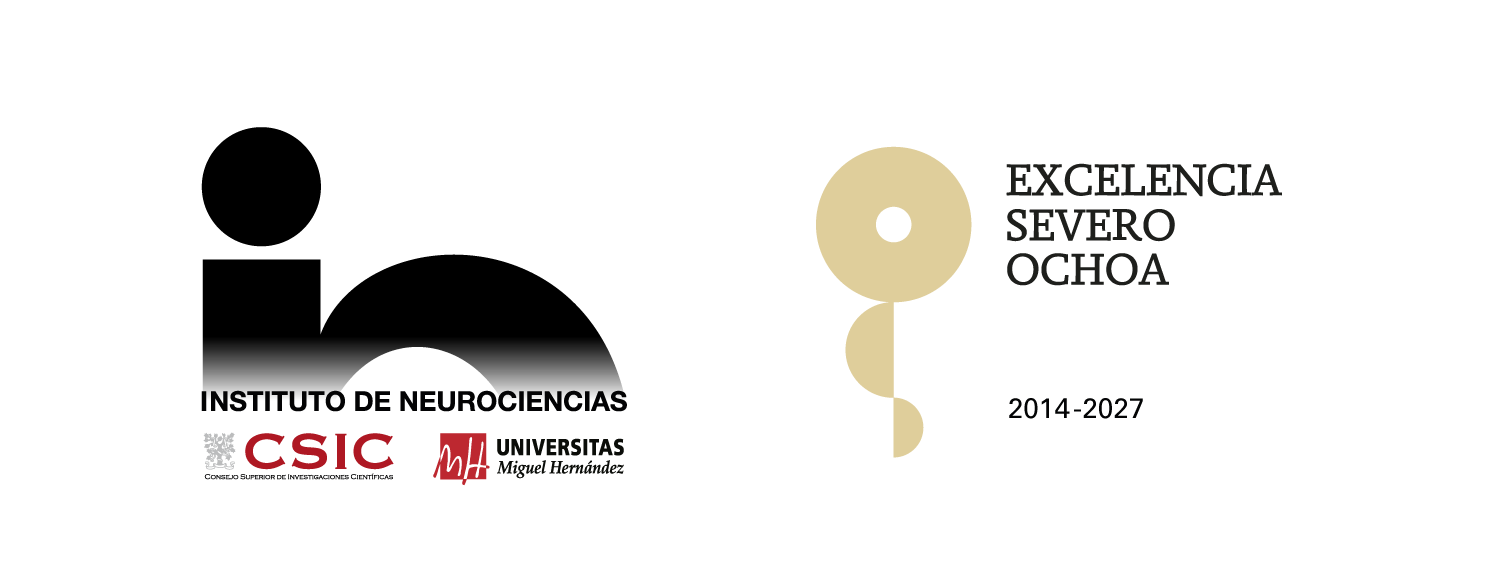The Institute for Neurosciences CSIC-UMH has held the 18th edition of the ‘IN Progress Report’ workshop
4 de July de 2025
The assembly hall of the Institute for Neurosciences (IN), a joint center of the Spanish National Research Council (CSIC) and the Miguel Hernández University (UMH) of Elche, has been the venue for the 18th edition of the ‘IN Progress Report’ workshop, held today, July 4. This annual event brings together one-third of the IN’s group leaders, who present the research developed in their laboratories over recent years and outline their future lines of investigation.
This year’s edition featured speakers from seven of the eight scientific programs that structure the IN’s research activity. From the program Synaptic Modulation of Neural Circuits and Behavior, researcher Félix Leroy participated with a presentation on the neural circuits involved in social interactions, as head of the Cognition and Social Interactions lab.
Representing the program Neural Stem Cell Regulation and Differentiation, Víctor Borrell, program director and head of the Neurogenesis and Cortical Expansion lab, presented his research on embryonic brain development and its relationship to cancer and evolution. He was joined by Francisco Tejedor Rescalvo, who studies the genetic mechanisms involved in neurodevelopmental disorders at the Molecular Neurogenetics lab.
From the Cell Plasticity in Brain Disease and Repair program, Ángela Nieto, its director and head of the Cell Plasticity in Development and Disease lab, gave a talk on cell plasticity trajectories in development and disease.
The program Building & adapting circuits into functional networks was represented by its director, Guillermina López-Bendito, head of the Development, Plasticity and Reprogramming of Sensory Circuits lab, who presented her work on the formation of sensory circuits and the key role of spontaneous neural activity.
The program Neurobiology of Pain and Inflammation included contributions from three researchers: Mari Carmen Acosta, co-leader of the Ocular Neurobiology lab, presented her research on functional, morphological, and molecular changes in corneal sensory nerves in health and disease; Hugo Cabedo, head of the Molecular Control of Axonal Myelination lab, discussed Schwann cell biology and nerve regeneration; and Paco Taberner, who leads the Wiring and Function of Somatosensory Circuits lab, shared insights into the molecular regulation of Piezo2 and its role in sensory mechanotransduction.
The program Genetic & epigenetic basis of Individuality & aging was represented by its director, María Domínguez, who leads the Mechanisms of Growth Control and Cancer lab, where she investigates the genetic basis of resilience and how individual variability shapes neural mechanisms.
Lastly, from the program Translational research of neurological and psychiatric disorders, Santiago Canals, co-director of the Plasticity of Brain Networks lab, presented his research on how rhythmic brain activity and neuromodulation shape memory and addiction, combining cutting-edge approaches, including personalized digital twins.

Photo: 18º IN Progress Report, Instituto de Neurociencias, CSIC-UMH
The symposium was organized by researcher Javier Morante, who chaired the event alongside Juan Antonio Sánchez Alcañiz. Second-year PhD students of the IN doctoral program also participated by presenting posters with the latest advances in their thesis research.
Source: Institute for Neurosciences CSIC-UMH (in.comunicacion@umh.es)

 Español
Español